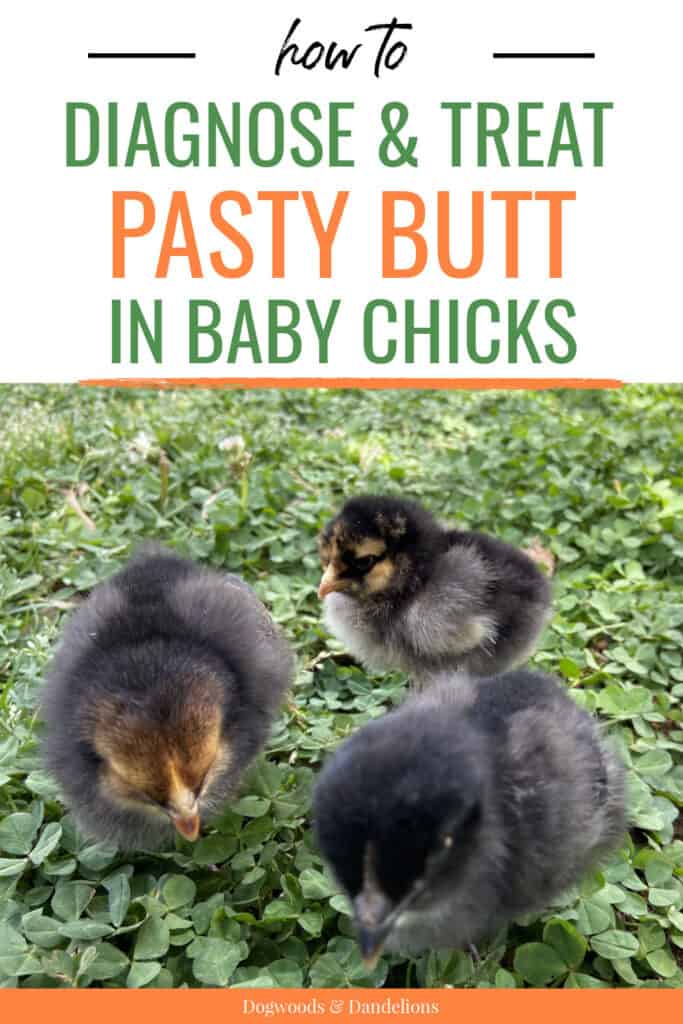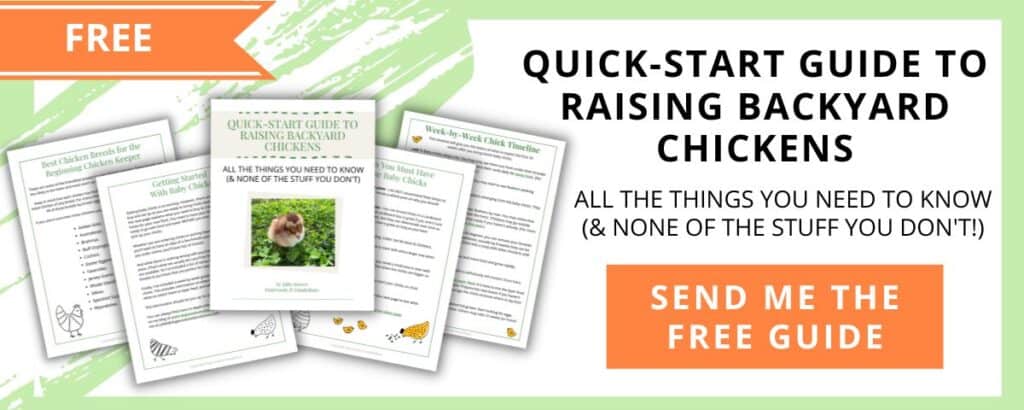What is Pasty Butt in Chicks?
Inside: Learn what pasty butt in chicks is and how to treat the issue before it gets out of hand.
Pasty butt in baby chicks can be deadly. But what is pasty butt in chicks and how do you treat it? Read on about how to diagnose this common issue that occurs in young chicks so that you can confidently handle this issue yourself.
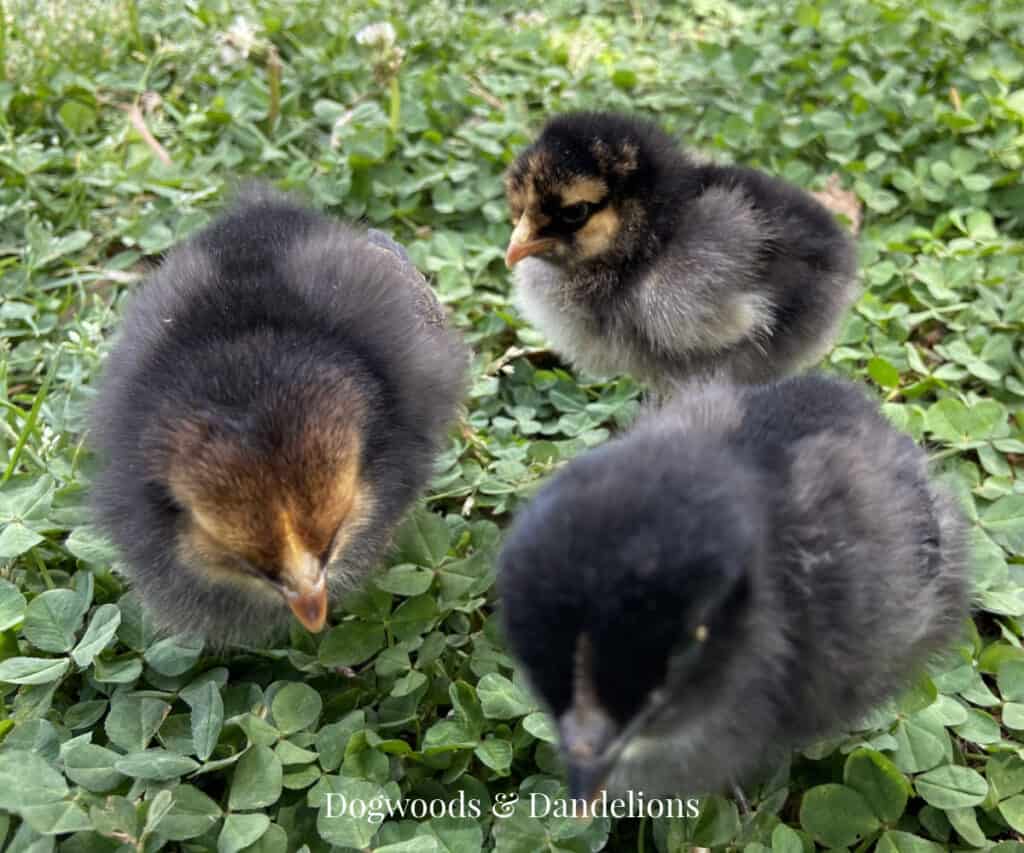
Affiliate Disclosure: Please note that some of the links in this article may be affiliate links and I may receive a small commission if you purchase something through a link. It will not change your cost. As an Amazon Associate, I earn from qualifying purchases. For more information, see my disclosures page.)
What is Pasty Butt?
Pasty butt, also called pasty vent, is basically chicken poop that gets stuck to a young chick’s feathers after it poops. Over time, it builds up and blocks the vent so the chick can’t expel the waste anymore.
Pasty butt is most common in a young chick’s first week of life, however, it can occur for several weeks after hatch.
Once the sticky droppings get caught in the baby chick’s fur, it is difficult for the chick to remove them. Eventually, if not treated, the baby chick will die. However, pasty butt is easily treatable if caught early.
How to Identify Pasty Butt
The easiest way to identify pasty butt is to pick each chick up daily and inspect their vent. If there is anything stuck to their feathers, use a warm, wet paper towel or cloth to remove the droppings.
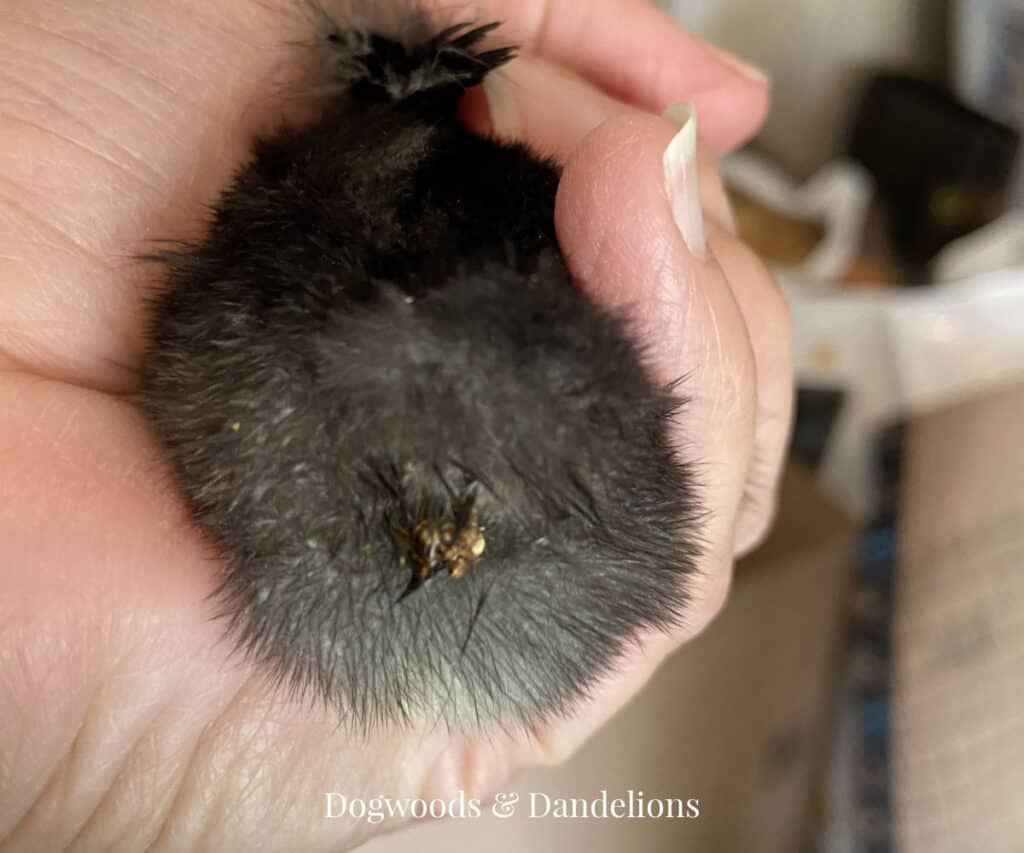
Chicks with pasty butt may also look lethargic and not be as active as other chicks. They may try to pick off the droppings with their beak. Sometimes you may also see them hunkering down trying to poop.
Chicks with extreme cases of pasty butt may not eat or drink much. If the chick gets this bad, immediate intervention is necessary. However, by this point, the chick may not survive.
Causes of Pasty Butt
Pasty butt is most common in newly-hatched chicks that are shipped from hatcheries. They can get chilled while en route to the feed store or the post office for pick up.
Chicks that are shipped are also often slightly dehydrated which can contribute to the problem.
Pasty butt isn’t often seen in chicks that are hatched via a broody hen. The mother hen will usually take care of cleaning the chicks after hatch and looking after them well.
How to Prevent Pasty Butt
The best way to prevent pasty butt is to check each chick’s vent first thing when putting them in the brooder after bringing them home. Then check each chick’s vent every day and remove any stuck droppings immediately. (I explain how to clean the dried poop from its bottom below.)
Be Sure The Brooder is the Right Temperature
Ensure that your chicks are warm enough by using a heat plate or EcoGlo brooder. Allowing your chicks to get cold can exacerbate the problem.
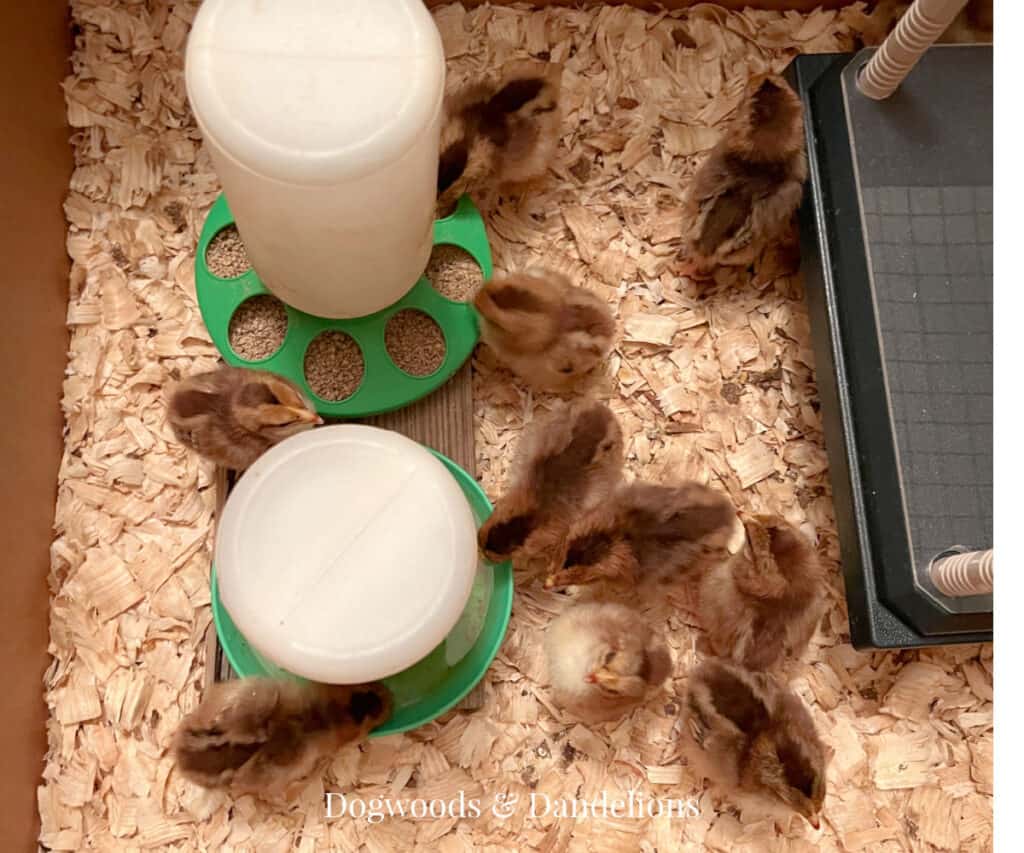
Check to be sure your chicks aren’t constantly huddling under their heat source. If using a heat plate or radiant heater, be sure that the room you are brooding them in is warm enough.
If you are using a heat lamp (See why I don’t recommend a heat lamp here.) make sure that the brooder temperature is appropriate for the age of the chick. For the first week of life, the brooder temperature for new chicks needs to be kept close to 95 degrees.
Each week you should lower the temperature in the brooder by 5 degrees. The best way to accomplish this is by raising the heat lamp.
Keep in mind, the heat lamp will have to remain on 24 hours a day, 7 days a week. This means you will have to leave it on while at work and all during the night.
Heat lamps are extremely dangerous causing many fires each year. The heat lamp will also add a significant amount to your electric bill.
Provide Adequate Food & Water
Be sure that your chicks have enough food and water. Your chicks should have plenty of fresh, clean water at all times. I find it helpful to use room temperature water as cold water can chill the chicks and make them more susceptible to pasty butt issues.
The chicks also need to be eating chick feed also known as chick starter. New baby chicks need the higher protein of food specifically designed for young chickens.
week-by-week guide to
Raising Backyard Chickens
Know exactly what to expect each week after you bring home baby chicks.
Minimize Stress
Stressful situations can also contribute to pasty butt. Minimize stress as much as possible in your new flock. This can be difficult as the journey from hatchery to your home is stressful in itself.
However, do what you can. Have your brooder set up before you ever go pick up your chicks and have warm water ready. Read more about setting up your brooder properly here.
Handle the chicks gently, and don’t allow young children or pets to terrorize your chicks.
Keep in mind though, that the occasional case of pasty butt is nothing to worry about as long as it is treated immediately.
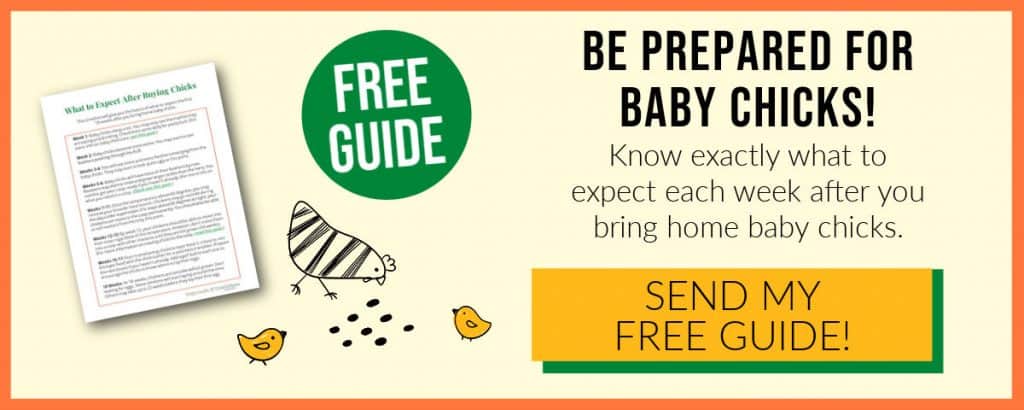
How to Treat Pasty Butt
The good news is that treating pasty butt is relatively easy to treat if caught early. Using warm water wet a washcloth or paper towel and gently moisten the droppings stuck to the feathers.
Wipe downward on the baby chick’s vent in gentle motions with the wet cloth. You may have to work at it a bit.
Be careful of the chick’s belly button, which is located on the chick’s belly below the vent. This area, also called the navel, is where the chick absorbed the egg yolk prior to hatching. It will still be sensitive.
If the hardened poop is stuck to the vent area, you may have to use a pair of scissors to gently cut the fur away. If the area looks raw you can apply a bit of petroleum jelly or olive oil to the affected area with a cotton swab. This will also make it easier to remove any other dried feces that may get stuck.
While none of this is particularly pleasant for the chick, if left untreated pasty butt will eventually kill the poor thing.
Usually, after 2 to 3 weeks of age, pasty butt is no longer an issue. However, if droppings continue to be stuck to a chick’s bottom, it could indicate a more serious disease or illness.
Related Posts
- Learn How to Care for Baby Chicks
- Week-by-Week Guide to Raising Chickens
- Chicken Terms Explained – Learn about the words people use to talk about chickens and what they mean so you can talk confidently about your flock.

Meet Julie
I’m a farm girl born and bred in North Carolina. I’ve been growing a vegetable garden for over 20 years (and helping my Mom grow hers even longer). I’ve been raising chickens in my bathtub and backyard for 12+ years. I believe that homegrown food can be made simple. Let’s get started.
